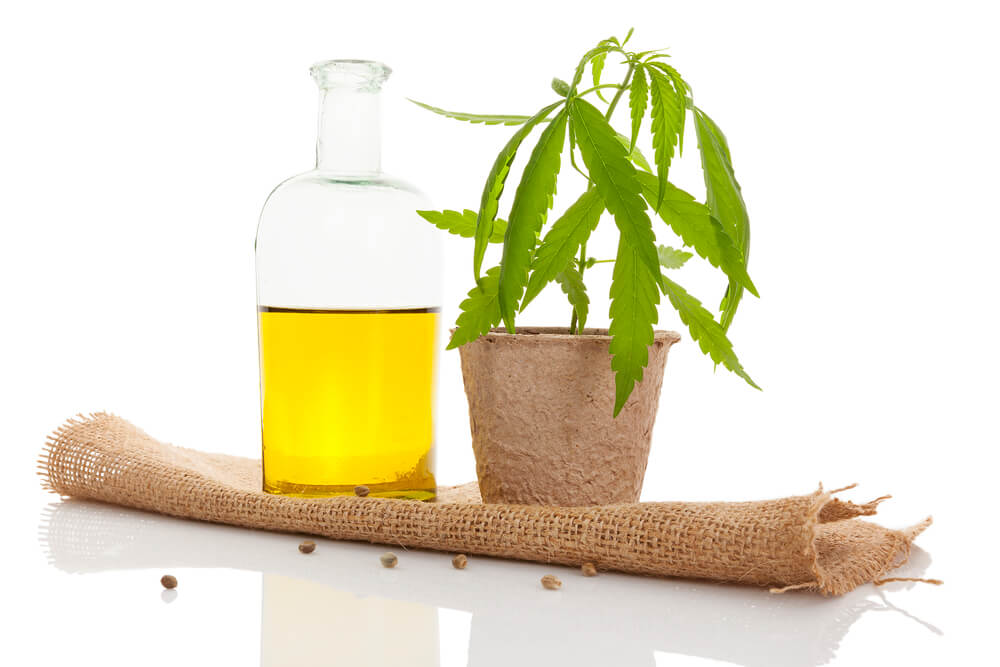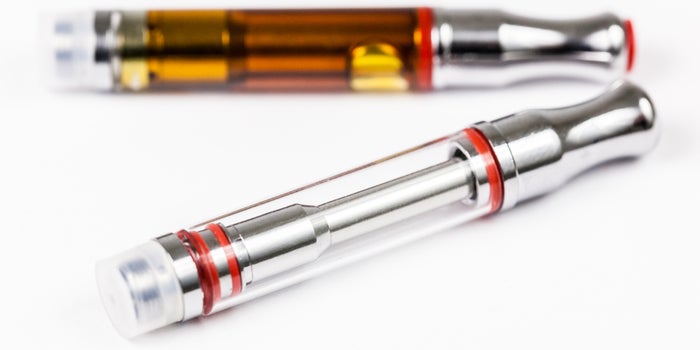Table of Contents
- What Are The Factors That Can Affect A Cannabis Oil’s Shelf Life?
- Terpenes, Cannabinoids And Concentrate Shelf Life
- Consumer Considerations For Extended Shelf Life
- The Impact Of Extraction Methods In CBD
- Summary
Can cannabis oil go bad? As with most packaged products, there are periods when CBD oil is no longer safe or ideal for consumption, either due to time-lapse or a host of other factors which we shall consider below. This article takes you through the average shelf life of THC and CBD oil, their extraction process, what to look out for when buying them, and what measures to take to ensure the longevity of your favourite oils. It will also consider how to ascertain when CBD oil is no longer safe for use, so you can know whether to dispose of that CBD oil stashed away in your drawers or get a fresh bottle.
PS. If you are looking to add to your collection, check out our CBD oils here.
What is Cannabis Oil?
Cannabis oil is a concentrated extract derived from the cannabis plant, containing varying levels of cannabinoids such as THC (tetrahydrocannabinol) and CBD (cannabidiol). These cannabinoids are the active compounds responsible for the therapeutic and psychoactive effects of cannabis. Cannabis oil is a versatile product that can be used for both medicinal and recreational purposes, offering a range of benefits from pain relief to relaxation.
The extraction process for cannabis oil can vary, with methods including solvent-based and solventless techniques. Solvent-based extraction uses substances like ethanol or butane to dissolve the cannabinoids and terpenes from the cannabis plant, while solventless methods, such as CO2 extraction, use pressure and temperature to achieve the same result. The resulting oil can be consumed in various ways, including vaping, topical application, and ingestion, making it a popular choice among cannabis users.
What Are The Factors That Can Affect A Cannabis Oil’s Shelf Life?
The longevity of a cannabis oil product may be determined by several factors regardless of the brand or variant. Some of these factors may include how long it has been in stock, exposure to sunlight, heat, and oxygen among others.
These factors will now be considered so you can make the right decision when choosing what cannabis oils to buy.
-
Environmental Factors
One of the major determinants of the longevity of cannabis oil products is the environment in which the source plant was grown. This is particularly so because hemp plants are easily prone to absorbing toxins and heavy metals. Therefore, cannabis oils made from hemp plants that are grown in low-quality soil will be of inferior quality and may not stand the test of time. On the other hand, if the plant is grown in good soil that’s low in toxin and heavy metal components, the resulting cannabis oil will be of great quality and is likely to have a long shelf life. Additionally, the quality of the soil can also affect the product’s shelf life.
-
Sunlight
Another important factor in the shelf life of cannabis oils is sunlight exposure. To get the best out of your Cannabis oil, it’s best to store it in a cool environment. Room temperature is okay, but cannabis oil should be kept away from direct sunlight to prevent the depletion of its terpene content and a reduction in quality. You should also consider getting cannabis oils packaged in “UV protection” bottles to minimize the risk of sunlight exposure. Proper storage is also crucial for cannabis oil cartridges to prevent degradation over time.
-
Oxygen
Oxygen is one of the most potent enemies of cannabis oil storage. This is because it can affect the chemical balance of the product. Exposure to oxygen (referred to as oxidative stress) may cause a degradation of the terpenes and cannabinoid content in your cannabis oil, thereby reducing its efficacy.
-
Heat
Like with sunlight, exposure to heat is very tricky and could reduce the quality and potency of your Cannabis oil if care is not taken. Storing the product at room temperature is fine but should not exceed 70 degrees Fahrenheit to maintain the oil’s potency and prolong shelf life. For this reason, you may choose to refrigerate your Cannabis oil although that only makes it thicker, a problem that is easily resolved by warming up the bottle.
-
Time
Time effectively changes all things and there is no escaping this factor. The average shelf life of cannabis oil products varies from 1 to 2 years. As such, it’s best to get a new bottle should you notice a change in smell, taste or the bottle has been in use for a long time. Also, cannabis oil products like edibles come with an expiry date and should not be used or consumed once the date lapses. It’s also noteworthy that product efficacy reduces over time.
-
Air
Ever wondered why most cannabis oil products, particularly tinctures come in airtight bottles? This is tied to the oxygen factor as exposure to air could interfere with the oil’s chemical balance and slowly reduce its potency. Exposure to air may cause the cannabinoids in the oil to dissolve and ultimately reduce the shelf life of your cannabis oil.
Terpenes, Cannabinoids And Concentrate Shelf Life
The shelf life of CBD products depends on the interaction of environmental factors such as time, heat and air with the inherent terpenes and cannabinoids that make up your concentrates and oils. However, due to the difference in compound levels and components, some concentrates have longer shelf life than others. For instance, when it comes to terpene profiles and flavour, degradation begins to occur between three to four months while cannabinoids generally take a longer time to break down.
Fortunately, this problem is solvable. The solution lies in buying winterized products that focus on removing plant residue and other impurities and also operate to give terpenes a longer shelf life. Regardless of the component ratio and type, winterized CBD products tend to have longer shelf lives than non-winterized products. Also, winterized products have a smoother finish and keep the THC and terpene profiles intact.
How Long Does CBD Oil Last Once Opened?
The safety and effectiveness of your CBD oil reduces over time, as such it’s best to consume it within a reasonable period. Once opened, factors such as dosage, package materials, and method of extraction go a long way in determining the shelf life of CBD oil. Similarly, the longevity of oil cartridges can be affected by these factors. But the most important factor is the method of storage. Improper storage may negatively impact the shelf life of your CBD oil. Safe storage practices help to prolong the shelf life of CBD oil and it could last anywhere between 12 to 24 months. For safety and efficacy, it’s best to replace your CBD oil once it hits the two-year mark.
CBD Oil Best Before Dates – Do They Matter?
So you’ve just discovered an old bottle of CBD oil in your drawer or haven’t finished consuming your current bottle which expires in a few days. This can be a tricky situation as you’re unsure what to expect if you go ahead and use the oil. It’s important to note that expired CBD oil won’t be as effective as one that’s not. Also, consuming expired CBD oil doesn’t have any negative effects on your health but it’s best to stick to the manufacturer’s use-by date and replace the bottle once it expires.
How To Tell CBD Oil Has Gone Bad?
There are two major things to watch out for when confirming the status of your CBD oil. The first is the smell or flavour. CBD oil generally stays the same even when it has gone bad except that it would have lost most of its terpene content causing a change in flavour and smell. If the smell is rancid or similar to what obtains when other consumables go bad, your CBD oil may be going through a bacterial infestation. It would be horrible to find out your backup CBD oil has gone rancid when you need it after getting a tooth pulled.
The second factor to watch out for is the colour or appearance of the oil. CBD oil has a clear appearance when it’s in good condition. If the oil appears murky or misty, it’s likely that it has gone bad and should no longer be consumed. Whether your product is full or broad-spectrum based, the presence of both factors implies that your CBD oil has gone bad.
Shelf Life of THC Oil
Average Shelf Life and Factors Affecting It
The shelf life of THC oil, much like other cannabis products, is influenced by several key factors. On average, THC oil can maintain its potency and quality for about 2-3 years if stored properly. Proper storage is crucial to extending the shelf life of THC oil, as exposure to elements like oxygen, light, and heat can accelerate the degradation of cannabinoids and terpenes, causing the oil to lose potency over time.
To ensure your THC oil remains effective for as long as possible, it should be stored in a cool, dark place, away from direct light exposure and heat sources. Using airtight containers can help minimize the oil’s exposure to oxygen, further preserving its quality. By following these storage guidelines, you can help maintain the potency and efficacy of your THC oil, ensuring it remains a valuable part of your cannabis collection.
Consumer Considerations For Extended Shelf Life
While several factors may impact the shelf life of your CBD oil, many of these factors are not out of your control as a consumer. Asides making sure that you’re buying quality CBD oils, it’s pertinent to follow good storage and dosage practices if you want to extend the shelf life of your cannabis oil.
Ideal Conditions for Proper Storage
When storing CBD oil, ideal conditions must be followed to preserve the potency and ensure it lasts long. There’s no point storing CBD oil if it has lost its potency. As a result, you should endeavour to keep your CBD oil away from direct sunlight and high-temperature areas. Places such as window sills, cars, cooking areas and moisture should be avoided by all means. Proper storage techniques for cannabis flower are also crucial to maintain its freshness and potency. Exposure to light, heat, and moisture can degrade the quality of cannabis flower, so using airtight containers is recommended to extend its shelf life. You should avoid leaving your CBD oil bottles open as exposure to air may alter the chemical make-up through oxidation. Tinctures are best kept in airtight bottles, as they’ve come in. Alternatively, you may store your CBD oil in UV bottles, a cool and dark drawer or refrigerator to extend its shelf life.
How To Prevent CBD Oil From Going Bad?
Keeping your CBD oil from going bad isn’t as hard as most people expect. As a matter of fact, if you practice the ideal conditions stated above, you can be certain that your CBD oil won’t go bad. A combination of the following steps will ensure the longevity and quality of your CBD oil.
- Always keep your CBD oil away from heat sources. This is because exposure to heat breaks down the compounds and facilitates bacteria growth, both of which may have a negative effect on the quality and efficacy of the oil.
- Avoid opening the bottle unless it’s necessary. This will help prevent air from getting in. Leaving your CBD container open for too long makes it prone to oxidation and bacteria infestation. Your CBD oil will only remain fresh as long as it’s airtight.
- It’s important to avoid placing the bottle in the path of direct sunlight. CBD oil is more susceptible to damage when exposed to the sun’s warmth. It’s advisable to store your CBD away from the reach of sunlight to prolong its shelf life.
- Use your CBD oil regularly. Storing CBD oil without using it will cause it to go bad eventually. So it’s important to stick to your dosage. This will help you to finish the oil before degradation sets in.
The Impact Of Extraction Methods In CBD
Extraction methods help to preserve the terpene and cannabinoid content of the plant while filtering out chlorophyll and other plant fibres. The following are the most common types of extraction methods and their impact on CBD oils.
CO2 Extraction
This is the most common extraction method and it’s done with the aid of pressurized chambers. Hemp and C02 are stored in separate chambers. The C02 is then forced into the hemp chamber which releases the CBD oil in its pure form. Products made through this extraction method are higher in CBD content and have a longer shelf life.
Check out this page for our products using this CO2 extraction method.
Steam Extraction
This extraction method features the use of water vapour to break down the plant’s cells, releasing the oils into the water. The oil is later separated from the water. This method is regarded as the safest method though it’s difficult and contains less CBD than the C02 method. It also ensures a stable and long-lasting CBD oil.
Solvent Extraction
This is the least popular of the extraction methods. It involves the use of solvents such as butane to release the oils from the plant cells. Its low popularity is tied to the inferior quality of oil extracted and the health dangers posed by the solvent’s by-products. These may also have an adverse effect on the shelf life of CBD oil.
Safety and Compliance
Is Cannabis Oil Legal and Safe to Use?
The legality and safety of cannabis oil can vary significantly depending on your location. In some regions, cannabis oil is legally available for medicinal use, while in others, it may be restricted or entirely prohibited. It’s essential to familiarize yourself with the laws and regulations governing cannabis oil in your area before purchasing or using it.
When it comes to safety, cannabis oil can be a safe and effective product if it is produced and stored correctly. Proper storage and handling are crucial to preventing contamination and degradation, which can compromise the oil’s safety and efficacy. Always ensure that your cannabis oil is stored in a cool, dark place, in an airtight container, and away from heat and light. By following these guidelines, you can help maintain the quality and safety of your cannabis oil, ensuring it remains a reliable and beneficial product for your needs.
Summary
While CBD oil offers a lot of health benefits, the questions of longevity and efficacy are vital considerations when buying your oil. It’s important to pay attention to the extraction method used in producing the oil and also to ensure safe storage practices to prevent your CBD oil from going bad.
If you need some additional guidance and to browse our selection of curated products, please head over to our Cannabis oils page and also our CBD oil page.



